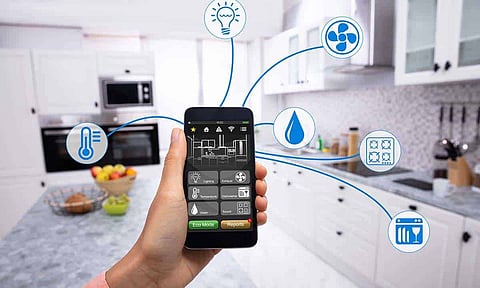

Richie Rich was one of the most famous characters Harvey Comics ever produced. If you remember the comic, it is hard to forget Irona, Richie's robot maid. Later, when Netflix adapted it into a series, it made Irona have a better resemblance to a human. Imagine having such a robot maid at home, doing all chores, and catering to your needs. It is not necessary to be rich to afford such services now. Artificial intelligence and robotics have already entered our spaces without any advance notice.
Artificial Intelligence may have seemed to be in hibernation for several years. But they are visibly in use now. From digital voice assistants to robotic kitchens, artificial intelligence plays a pivotal role in our daily lives inside our homes. In the last episode of 'Predicting our Future,' a podcast series by Andrew Weinreich, he explains how personas will play the central role in developing smart home intelligence.
Let us ponder some of the existing artificial intelligence-driven mechanisms that play a pivotal role inside our smart homes.
We seldom use remote controls at our home. These days, it's either Alexa, Siri, or other voice assistants we call out for when we need help. Be it changing channels, switching off lights, or placing online orders. These smart speakers are capable of receiving commands and acting on them. They use artificial Intelligence-driven natural language processing to perform a task.
These smart speakers have already become part of our lives. It is now easier to do basic tasks without moving around.
According to the Juniper Research report published in 2020, there will be 8.4 billion digital voice assistants in use by the year 2024. And this upsurge, led by smartphones will overtake the world population.
Technologies like machine learning, image recognition, and data-driven predictions integrate with smart kitchen appliances to create a personalized food experience. When a smart fridge can suggest recipes by scanning the available ingredients inside, it becomes easier to prepare food. This extends to a phase that allows preparing food according to personal choices and serving it on your plates. Artificial Intelligence can save time, energy, and reduce food waste in the kitchen.
Recently, McCormick and IBM shared the limelight for coming up with new food flavours using artificial Intelligence. This combined with data-driven algorithms can easily come up with recipes and prepare meals according to the customer's choice.
Moley, the complete robotic kitchen which started in 2014, is now getting ready for the public. It includes two complex robotic arms, a GUI screen with a huge database of recipes, a recipe recording system making it a fully automated smart kitchen unit.
Robotic vacuum cleaners are not new for us. They have been in use for almost two decades. Over these years, technological changes have changed the functions and made it more sophisticated. Now, robotic vacuum cleaners can detect objects using 3D geometry and scan the area to avoid any obstacles. Planning a cleaning map, real-time recognition of clean and unclean surfaces makes this more capable of making human lives easier.
Like Andrew Weinreich suggests in his podcast 'Predicting our Future,' smart homes ensure an energy-efficient, comfortable, easier living with less mundane tasks to focus on. When your home can take care of itself and your needs, more time goes into productive work.
A smart home will understand your choices using predictive analysis and caters to your need using artificial Intelligence and machine learning technologies. It will have an interconnected ecosystem that can be controlled by smartphones or the internet.
With rapid urbanisation and increasing demand for technology, smart homes equipped with artificial Intelligence is something to watch out for.
Join our WhatsApp Channel to get the latest news, exclusives and videos on WhatsApp
_____________
Disclaimer: Analytics Insight does not provide financial advice or guidance. Also note that the cryptocurrencies mentioned/listed on the website could potentially be scams, i.e. designed to induce you to invest financial resources that may be lost forever and not be recoverable once investments are made. You are responsible for conducting your own research (DYOR) before making any investments. Read more here.
